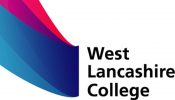
Social Care
Introduction to T Levels
T Levels are a new, 2-year Level 3 qualification for 16- to 19-year-olds. Designed with employers from multiple sectors and combines classroom study with an industry placement.
Each T Level is equivalent to 3 A levels and helps young people develop the knowledge, attitude, and practical skills to progress into skilled employment or an apprenticeship.
Every T Level student must complete an industry placement that lasts a minimum 45 days. This provides learners the opportunity to put their learning, knowledge and skills into practice in a real workplace environment and prepares them for the world of work or further study like higher apprenticeships. Industry placements also gives employers a unique opportunity to develop new talent and help young people to become work ready and develop their career in the Social Care sector.
More information can be found in the social care training hub employers guide to T Levels located in the resource section.
Benefits to Employers
- Attract motivated young people to your business, bringing in imaginative and new ideas
- Improve the recruitment pipeline for your business
- Address local and national skills gaps by helping young people develop the skills your industry needs
- Develop existing staff’s mentoring and management skills
- Build a more diverse and creative workforce
- Play an important role in the local community
- Build partnerships with local training and education providers
- Save recruitment costs by providing the opportunity to see what the young person can offer, on a no-obligation employment basis
Case Studies and Podcasts
(Coming Soon)
Coming soon.
College T Level Programme Information
If you would like to register an interest in any of the T Level programmes below please click on the Register an Interest in a T Level Industry Placement button in the Contact Info section above.
Course Summary | This technical qualification is suitable for post-16 students looking to develop both knowledge and practical skills in the health and care sector and supports students onto a range of progression routes including employment, higher education and higher apprenticeships. |
Name of T Level | Early Years (education and childcare sector from ages 0 to 19) T Level |
Name of T Level | Health T Level |
Course Summary | If you want to play a vital role in developing the nation’s young people, then a T level course in Education and Childcare is for you. Work with, or for the benefit of children, by studying the issues affecting them, including health, play, social influences and rights. |
Course Summary | T-Levels are new courses which follow on from GCSEs and are equivalent to 3 A-Levels. These 2-year courses have been developed in collaboration with employers and businesses so that the content meets the needs of industry and prepares you for work, further training or study. |
Course Summary | The Health T Level is designed to provide students with the knowledge and understanding of contexts, concepts, theories and principles relevant to the health sector. This will ensure students are able to apply their skills in a variety of contexts and for a variety of different purposes to support and develop professional competencies. |
Course Summary | Nelson and Colne College Group offer the T-Level Health qualification with three pathways; Adult Nursing, Mental Health Nursing and Midwifery |
Course Summary | This course develops the skills and knowledge required for those who wish to pursue a career in Health and Social care. Students will enjoy industry experience in carefully selected placements and study units covering different aspects within this field. |
Course Summary | The Level 3 technical qualification provides learners with the knowledge, skills and behaviours needed to progress into skilled employment or higher-level technical training or study in the health and science sector. The core knowledge and understanding are assessed through an examination and core skills through a practical employer-set project. In addition to this, maths, English, and general digital skills will be integrated within the qualification in occupationally relevant contexts. |
General
- Word download: Employers Guide to T Levels
Resources
Employers
- PDF open or download: Student Placement Book
- Word download: Student Placement Book
FAQ's
This section displays a range of frequently asked questions.
As with any new starter, there will be some planning and paperwork, however providers will support you with the practical and administrative tasks to help make the process as streamlined as possible. This will include organising the student selection process, arranging the review meetings, guiding you through the relevant paperwork and advising on reasonable adjustments. Providers will look to you for your industry expertise when planning the structure and content of the placement to ensure you, and the student, gets the maximum value from the experience. Providers will also make sure that you are complying with the health and safety guidelines prior to, and during, the placement.
Students will be suitably prepared for the workplace by undergoing appropriate work preparation training as part of their course prior to starting their placements. All students will bring a good level of technical knowledge and skills they have learnt in the classroom, to apply in the workplace. For some students this will be their first experience of being in the workplace, so as a minimum, providers will make sure they have the right work ethic and a good understanding of the professional behaviours that employers expect in the workplace.
T Levels have longer teaching time and more occupationally focused skills and knowledge which have been set by employers as essential for employment. The aim of the industry placement is to help students to apply and develop the skills and knowledge that they have learnt in the classroom when they go out on their placement, which will help them to become ‘work ready’.
Work experience has previously involved a student being with an employer for one or two weeks with time spent mainly following and observing. Industry placements are for a minimum of 45-days (depending upon occupational specialism), and are for students on a relevant course who will have the technical skills, knowledge and time to add value to your business.
Industry placements bring great benefits both short and long term. Short term benefits include raising the profile of the care sector as an employer, extra support with projects or services. You also contribute to the development of a young person. Placements are an excellent way of creating a recruitment pool for apprenticeships or other types of employment. Organisations are now exploring new avenues to attract talent and ensure they have a workforce to deliver their services. T Levels are a crucial part of achieving this.
Yes, a placement can be split across 2 employers, where this is considered necessary for ‘breadth of content’ and/or is beneficial for students. You can discuss this with providers. More information about ‘sharing’ a placement with another employer.
You should identify an appropriate line manager and/or supervisor for the students, as well as additional support staff where appropriate. This should ideally be someone who has experience of training others within the specialist area. They must have the capacity to hold regular meetings with students to provide them with feedback, provide day-to-day supervision and attend the formal review meetings with the provider i.e. at the beginning, middle and end of the placement.
The industry placement component of the T Level is the unique selling point for students. Students understand the importance of using the placement to develop their skills and knowledge and show their potential to prospective employers, and as an important addition to their CV. T Level students must have demonstrated a firm commitment to completing their industry placement when enrolling on the course. In advance of the placement, students will have undertaken workplace preparation and have a clear understanding of the progress they must make towards their learning goals during their placement to complete it successfully, and therefore achieve their overall T Level. Prior to the placement commencing, all students are expected to sign an industry placement agreement, which acts as a formal agreement between students, the provider and employer and contains students’ roles and responsibilities. It outlines the expected standards relating to technical skills and work-based behaviours that students must display in order to complete their placement. Employers and providers are also expected to sign the agreement to show their commitment to their respective roles and responsibilities.
Placements should be organised in line with the normal requirements of the industry, which may be outside the academic timetable. Placement hours must align with the Working Time Regulations, particularly if students are undertaking a block placement, where they could be working the equivalent of full-time hours. Providers will plan placements to ensure students are not exceeding the maximum number of allowable daily hours and consider students’ independent and classroom-based study time as well as their outside responsibilities.
Students must:
- be limited to 8 hours of working time a day and 40 hours maximum per week
- not be permitted to work between 10pm and 6am, or employers can agree to change this to between 11pm and 7am
- have a 12-hour rest period between each working day
- have a 30-minute rest break if working for more than 4.5 hours
- have 2 days weekly rest
| Working Time Regulations |
You are under no obligation to pay students but can choose to do so if you wish. This is because T Level industry placements are about providing students with high quality, meaningful training, not work. You can refer to GOV.UK for guidance.
| Making-payments-to-industry-placement-students |
You can choose to contribute towards the cost of students’ travel, lunch, and clothing/equipment. This is entirely up to you. Providers can also cover these costs to ensure students are not financially disadvantaged by undertaking their placements.
You should speak to the provider about the tangible costs you are likely to incur, such as software, hardware, PPE, specialist equipment that students will use on their placement, and also the cost of Disclosure and Barring Service (DBS), because a lot of these costs can be covered by the provider. There should only be a minimal initial outlay for employers hosting a placement and the small investment in time is worth the tangible benefits.
Providers and employers must work together to ensure student safety during the industry placement. As part of their pre-placement checks, providers need to satisfy themselves that employers have up-to-date policies and sufficient risk management arrangements in place to ensure a safe working environment for students. Providers should also carry out standard due diligence checks on employers, keeping the checks proportionate to the level of risk. As an employer, you should follow the guidelines on the Health and Safety Executive website and also the legal compliance for industry placements that covers DBS, insurance and health and safety requirements.
Students should be treated with the same degree of professionalism and duty of care as regular employees. Legal obligations under the Equality Act 2010 apply, including not using language or behaviours which could be discriminatory.
All employers are expected to:
- provide a safe and welcoming learning environment for all students
- have a zero-tolerance policy of bullying and harassment
- report all incidents to the provider
- be alert to the possibility of physical/emotional abuse among employees and students
- ensure that any agreed reasonable adjustments have been put in place
In some industries, students may be exposed to commercially sensitive or confidential information during their placement. If it is normal practice to put clauses in place to protect the business, then it is recommended that you follow the same principles for students, as you do with employees. You can draw up a confidentiality statement for students to sign. Although not legally binding, it could give you peace of mind and confirm to students how important confidentiality is to your business.







